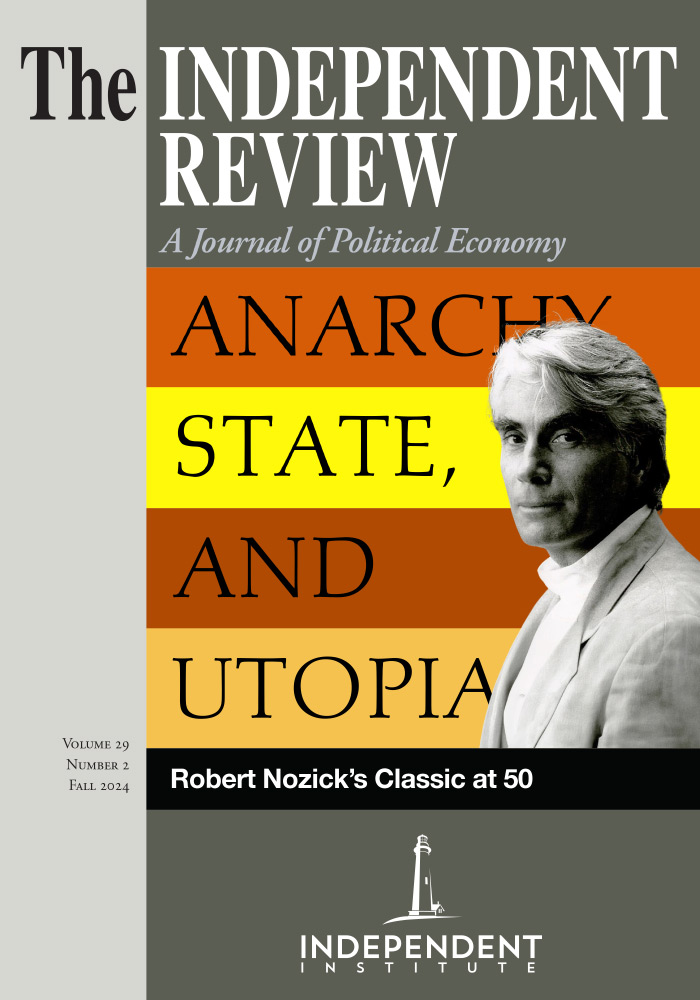This paper uses the systems-oriented approach of economist Richard Wagner to build upon Robert Higgs’s contributions to illustrate how crises are produced and, in turn, legitimize the ratcheting of larger governmental size and scope over the long run. Key to this micro-foundational contribution toward ratchet effect theorizing is the opportunistic blending of interest-oriented activity and ideational-moral argumentation by creative actors to entrench crisis period rents and privileges.
This full text of this article will be available on this page nine months after its initial print publication. To read it now, please buy this issue in print or downloadable eBook & PDF format, or in the Independent Review app on iOS or Android, or on Magzter which offers digital access on smartphones, tablets, and web browsers.
Mikayla Novak is a senior fellow in the F. A. Hayek Program for Advanced Study in Philosophy, Politics, and Economics, Mercatus Center at George Mason University.
| Other Independent Review articles by Mikayla Novak | |
| Summer 2023 | Gene Sharp and Social Movements: Contributions and Legacies |
| Spring 2022 | Land, the State, and War: Property Institutions and Political Order in Afghanistan |









